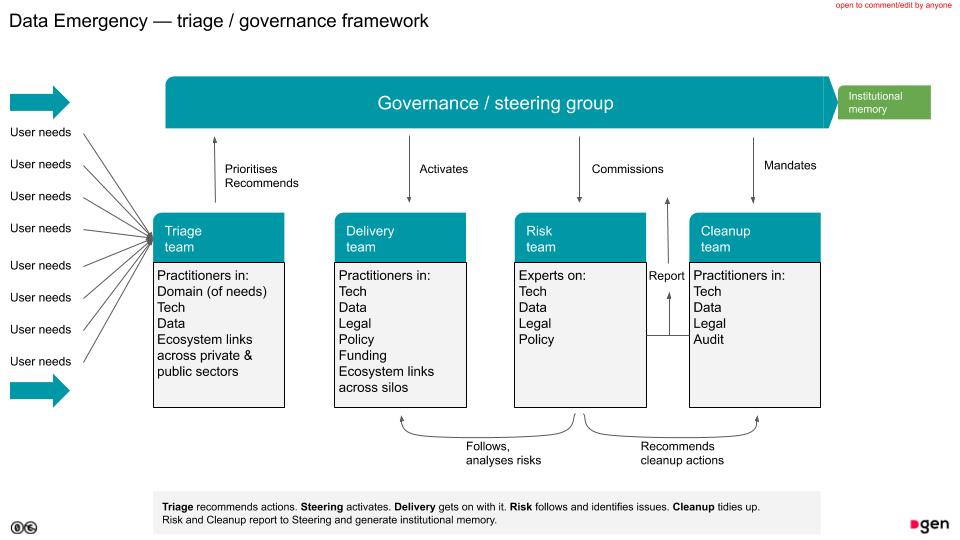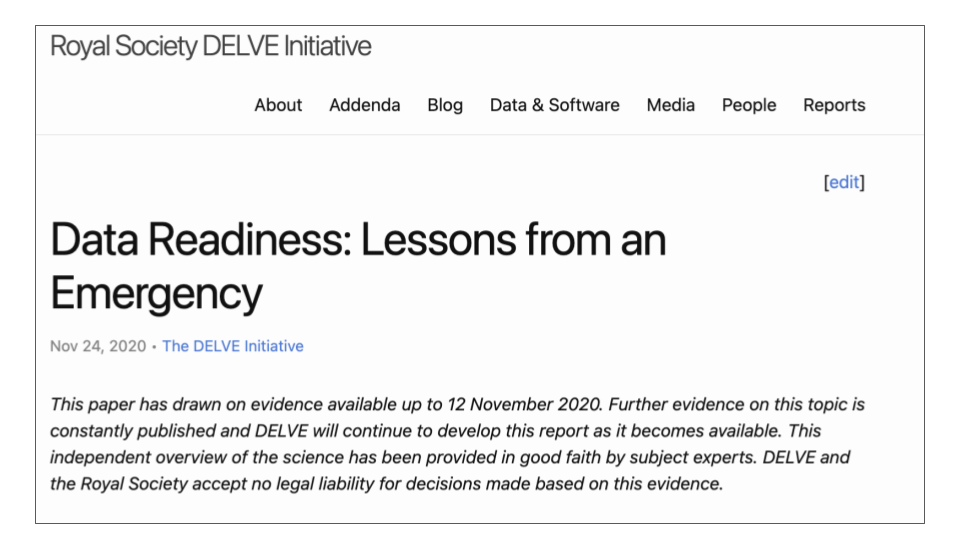This insightful report, from the Royal Societies DELVE initiative, “Data Readiness: Lessons from an Emergency” delves into the crucial role of data in emergency situations and highlights valuable lessons learned. Drawing from real-life experiences, it emphasises the importance of being prepared to leverage data effectively when faced with unexpected challenges.
The initiative has gathered experience with emergency situations and stresses the significance of having a data-driven approach. It highlights the need for organisations to recognise the value of data and incorporate it into their decision-making processes. By doing so, organisations can gain critical insights that help them respond swiftly and effectively.
The report outlines key factors that contribute to successful data readiness, specifically
- the significance of investing in data infrastructure
- developing a holistic approach including tools, systems, and processes, to ensure the availability, accessibility, and quality of data
- that data readiness is not solely a technical issue but also requires organisational commitment and cultural transformation.
It stresses the importance of collaboration and knowledge sharing between different stakeholders involved in emergency response efforts, highlights the need for establishing partnerships and creating platforms that facilitate data sharing and interoperability: that through open collaboration, organisations can harness the power of collective intelligence and make informed decisions based on comprehensive and up-to-date information.
It touches upon the ethical considerations surrounding data usage in emergency situations, emphasising the need for transparency, privacy protection, and responsible data governance. By adhering to ethical guidelines, organisations can build trust with the public and ensure that data is used for the benefit of affected communities.
It offers valuable insights into achieving data readiness in emergency scenarios and underscores the significance of investing in data infrastructure, fostering collaboration, and upholding ethical standards.
Summary of key elements:
- Importance of prepared data systems: Having well-prepared data systems is crucial for effective emergency response. It enables timely access to relevant data, which is vital for decision-making and coordination.
- Data availability: Ensuring data availability is essential during emergencies. It involves having data collection mechanisms in place and establishing protocols for data sharing among relevant stakeholders.
- Data accessibility: Easy and secure access to data is critical for timely decision-making. This requires establishing appropriate data access controls, and considering data privacy and security concerns.
- Data quality: Data quality is essential for reliable analysis and decision-making. Implementing data quality assurance measures and validation processes can help maintain accurate and reliable data during emergency situations.
- Interoperability: Ensuring interoperability among different data systems and platforms is crucial for effective coordination among various entities involved in emergency response. This facilitates seamless data exchange and collaboration.
- Standardised approaches: Implementing standardised approaches for data collection, sharing, and analysis promotes consistency and efficiency in emergency response efforts. This includes adopting common data formats, protocols, and procedures.
- Coordination and collaboration: Effective coordination and collaboration among stakeholders involved in emergency response are essential. This involves sharing data, aligning efforts, and establishing clear communication channels to maximise the impact of data-driven decision-making.
This very much echoes our experiences in developing data infrastructure and the data triage process.





